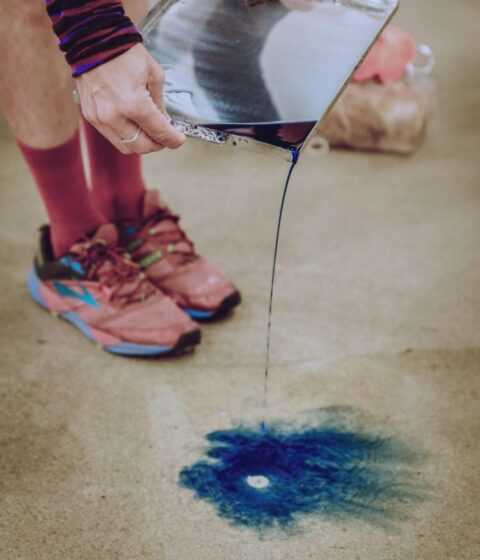DAI, sharing many of the same stakes, acts as one of the benchmarking institutions for a.pass ~ advanced performance and scenography studies in Brussels. From 8-10 July 2020 artistic director and head of program Gabriëlle Schleijpen takes part in the conference RESEARCH FUTURES which engages with a series of questions emerging from this comparative (self)-study.
As a publicly funded educational platform, a.pass is reviewed by the ministry of education in regular five-year intervals. With the next review process underway, a.pass took the opportunity to propose a collaborative process of self-evaluation to four other educational institutions – DAI – Dutch Art Institute, NL; Jan Van Eyck Academy, NL; Royal Academy of Fine Arts Antwerpen, BE and Uniarts Helsinki, FI in the field of artistic research. This process is motivated by a desire to establish a platform for mutual criticality where institutions of artistic research are not pushed to compete against each other, but can meet as partners sharing many of the same stakes. This critical intra-vision is also a balancing measure to the tendencies of such evaluations to produce an equalizing standard in a respective field of cultural production. Instead we aim to understand, compare and strengthen our differences, in order to create greater specificity and add complexity to the developing field of artistic research.
The upcoming conference “Research Futures” will bring representatives from five institutions of artistic research together with professionals working in the field of education, arts, culture, artistic research, curation and activism to engage with a series of questions emerging from this comparative (self)-study. We want to understand better what is the range of educational and institutional strategies and practices operating in the field of artistic research today. Where do we see common struggles, pitfalls and current problematics with respect to our concerns with inclusivity, sustainable support structures, institutionalization of artistic research and politics of publication. And finally we would like to compare ourselves to the future: what are possible scenarios for artistic research to continue its contribution to the field of artistic production, and how can these contributions respond to the changing social realities of a challenging future?
The conference will proceed in three steps, growing from a meeting to a debate.
On day one the representatives of the contributing institutions will meet to review the process of self evaluation. Moderated by Delphine Hesters, we will look for commonalities and differences between our institutions and how they operate and address the challenges we outlined together in our shared reports. This meeting will develop areas of concern to pass on to the next round of discussions the following day.
For step two we invited ca. 20 practitioners and professionals from the field of cultural production, education and artistic research to come together with us in a working session dedicated to the topics proposed on day one. Gathered around the topics in groups, the main objective will be for each group to critically develop relationships between present conditions and implications and future scenarios. Which relevance will this particular concern have in the future, how will it change in response to the developments of its social, economical and political context, what will be possible responses, adaptations and strategies to address those changes? Each group will be accompanied by a “reporter”, someone who will take notes and compile an ad hoc report for the debate the next day.
At step three we will open the content developed in the groups to a collective process. With the help of the “reporters”, the groups will present their findings to all present. The subsequent discussion, will be open to questions, comments, critique and contributions from all sides. This part will also be documented in audio and writing, and, together with the reports from preceding steps, contribute to a joined workshop conference report, that will be published and made available later in the year.
List of participants:
KASK – Heike Langsdorf, Frederique Le Roy; Adva Zakai; RITS – Geert Opsomer, Klaas Tindemans, Action Plan Europe – Tere Badia; PARTS – Bojana Cveijc, Charlotte Vandevyver; ROYAL ACADEMY FINE ARTS ANTWERP – Els De Bruyn, ERG – Laurence Rassel; CAVEAT – Ronny Heiremans, Kathleen Vermeir; KAAITHEATRE – Agnes Quackles; KANAL – Centre Pompidou – Guy Gypens; BUDA Kortrijk – Mathilde Villeneuve; LA LOGE- Laura Herman; WIELS Eva Gorsse; INDEPENDANT RESEARCHERS: Philippine Hoegen , Sebastian Hendrickx, Kristien Van den Brande, Sina Seifee and the Post-Graduate and Associated Researchers of a.pass; Benchmark participating institutions: Hicham Khalidi (Jan Van Eyck Academy), Elo Mika (Uniarts Helsinki), Gabriëlle Schleijpen (DAI), Nico Docks and Els De Bruyn (Royal Academy Fine Arts Antwerp); Moderator – Delphine Hesters

